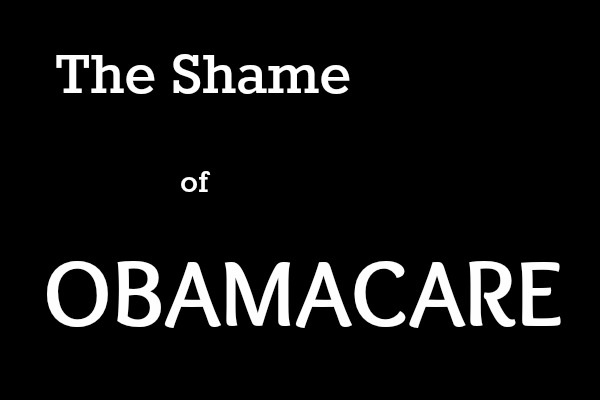I’m not in the camp of those (generally Republicans) who appear to believe that Obamacare is the greatest threat to Western civilization in our time. Nor am I in the camp of those (generally Democrats) who believe that Obamacare is a great achievement that is saving countless lives. Put me in the camp of those who think simply that it’s no big deal, but that it’s an unnecessarily complex law that has given government and the Democratic Party a bad name, while creating winners and losers in the private insurance market across the country. The losers generally revile the law; the winners, for the most part, shrug. That’s what makes the law a political loser for the Democrats. And put me in the camp (if there are others in this camp) who believe that, if only Obama hadn’t broken his campaign pledge by instituting a health insurance plan with the mandate that he had consistently opposed as a candidate, and if he had instead merely done as he had promised—instituting policies that would lower health insurance premiums—he would today be considered a wildly successful president who would still enjoy Democratic majorities in both Houses of Congress. Many of his remarkable accomplishments have been overshadowed, effectively drowned out by the tireless furor over the mundane matter of health insurance.
Obamacare did solve, albeit in a mindlessly convoluted way, one pressing problem: the people who needed health insurance the most—people with pre-existing conditions—were being denied coverage by health insurance companies if, say, they lost their job and had to apply for coverage in the private marketplace. That was a moral abomination, and it needed fixing. But the fix could have been so simple that it boggles the mind that the Rube Goldberg contraption of Obamacare was instituted instead.
Before I elaborate upon the simple fix, let’s take a moment to consider the problem objectively. We live in a capitalist society. For better or worse, we have a largely privatized health delivery system, although it is not without a substantial socialist component (Medicare and Medicaid). I don’t have any particular ideological disagreement with a single-payer system in theory, but in political reality, it’s simply not in the cards for America to socialize medicine entirely in the foreseeable future. So let’s get real: any solution to the pre-existing condition problem needed to be addressed in the context of the health care delivery system that we have.
If I told you that an eighty-year-old smoker who had just suffered a massive heart attack and was just diagnosed with lung cancer had applied for a million-dollar term life insurance policy and was denied coverage, would you rant and rave about those greedy life insurance companies? Of course not. You would perhaps chuckle that a deathly ill eighty-year-old should have imagined he could obtain such a policy.
By the same standard, why in the world should a for-profit health insurance company provide a policy to someone scheduled for a triple-bypass or diagnosed with some expensive-to-treat disease? It’s obviously in their financial interest to decline such a person—and yet we all agree that everyone should have the right to a policy. Obamacare “solves” this problem by removing underwriting from the equation and forcing private insurance companies to provide policies to all who apply, but making it up to those insurance companies by mandating that all citizens get policies or face a fine, and allowing insurance companies to effectively overcharge the young and healthy to pay for the old and sick.
The young are suffering enough in our economy with the difficulty of finding good-paying jobs, and are often crushed with debt incurred by obtaining an education. Forcing them to pay high monthly premiums for policies they are unlikely to use in order to subsidize the old and sick seems patently unfair.
Here’s the elegant, simple solution: keep underwriting in the equation. Allow insurance companies to weed out those who are too expensive to insure. And upon receiving a notice of declination, those individuals would become automatically entitled to a federal health insurance policy—essentially a Medicare policy, designed to be the equivalent, say, of a “bronze” plan offered under Obamacare, at something like the price they would pay if not declined in the private marketplace. This policy was in fact part of Obamacare between the years 2010-2013, before the mandate kicked in, and it worked fine (except that, for some reason, there was a waiting period; there should be no waiting period; if you get declined, you should get a federal policy immediately).
Shifting a significant number of sick people from the private insurance rolls to Medicare would immediately have the effect of lowering insurance premiums dramatically on the privately insured (remember, under Obamacare, insurance companies have to spend at least 80% of revenues on claims, so they can’t pocket the savings), and would create a more fair system of pricing wherein the young are not overcharged to pay for the old and the sick. Each person’s premium would be a fair reflection of their individual risk. And while allowing underwriting back in the equation, we should also allow health insurance carriers to re-institute a surcharge (up to, say, 25%) for smoking and for obesity. That was a positive effect of underwriting that helped motivate people to stop smoking and to avoid cheeseburgers. Let’s stop pretending that health is entirely out of a person’s own control, and is only something that access to doctors can restore.
Is there any cost to the elegant solution? Sure. Medicare costs would rise. But that’s an easy enough problem to solve: all we have to do is either raise the funds to meet that added cost or else find Medicare savings elsewhere. I can give a hundred progressive suggestions for how to do that but here are five: 1) end or significantly reduce agricultural subsidies, which cost $100 billion per year, and which effectively cause so much of our national health crisis since most of those dollars go to subsidizing animal agriculture and the foods that are making Americans fat and sick; 2) step up Medicare fraud enforcement; 3) raise taxes on the richest Americans; 4) increase the estate tax on estates over $5 million; 5) end the practice of allowing Medicare to pay for unnecessary “preventive” screening, like mammograms or PSA tests.
So here’s how you fix Obamacare: 1) end the mandate to purchase health insurance; 2) guarantee a federal policy immediately to anyone declined in the private marketplace; 3) allow underwriting back in the equation and allow surcharges for smoking and obesity; and, 4) keep the positive elements of Obamacare in place (the Medicaid expansion, the 80% rule, the ability to stay on a parent’s plan until the age of 26, etc.) The subsidies provided under Obamacare need to be fixed, too; they should be simplified and should be based on last year’s income, not next year’s. We have now a preposterous system in which people get subsidies based on their projections of their next year’s income, and then could theoretically lose those subsidies retrospectively if their income goes up. That’s just nuts, and it makes people understandably angry.
But the worst sin of Obamacare isn’t that it’s unnecessarily complex or that it punishes the young and healthy. The worst sin is that it misdiagnosis the problem. The health insurance problem is minor when contrasted with our real health problem: we are the fattest, sickest civilization ever to walk the earth. Obamacare does nothing to fix that. Taking underwriting out of the equation certainly doesn’t help fix that. The only way to fix that is to change the food we eat. And one of the most constructive things government can do to change the food we eat is to end agriculture subsidies, so that the price of a cheeseburger goes to twenty bucks and people stop making themselves sick by eating animal products. The real solution to our health crisis is an end to animal agriculture.
And that just happens to be the same solution that is our only hope for reversing climate change.
There were 60 Democratic senators who supported Obamacare. 28 of them are gone from the Senate now. Certainly not all because of Obamacare, but no other reason is as salient. Was it worth it?
Going forward, let’s define the word “progressive” accurately. Working to end animal agriculture is progressive. Forcing people to buy a product from a private insurance company is not.
Click to contact Glen Merzer!

